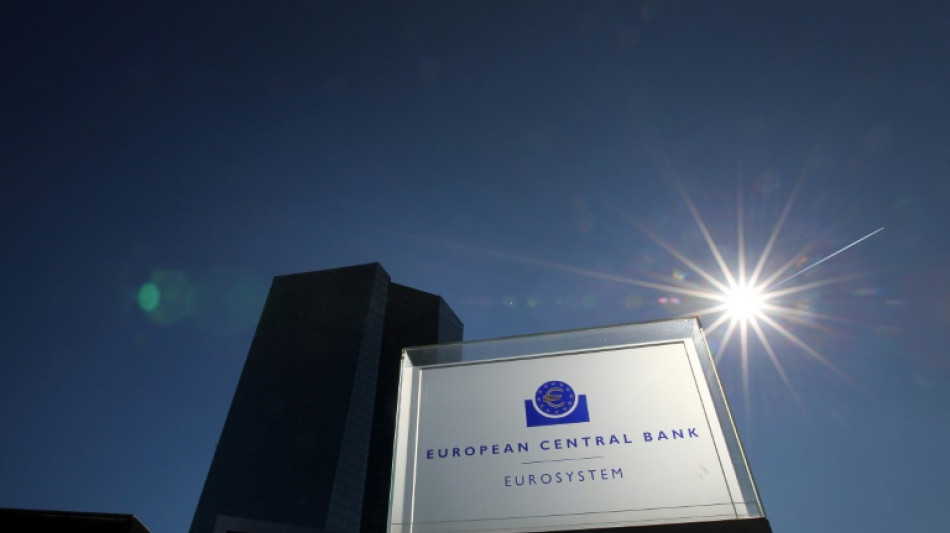
-
 First responders in Gaza run out of supplies
First responders in Gaza run out of supplies
-
Pakistan shoots down 25 Indian drones near military installations
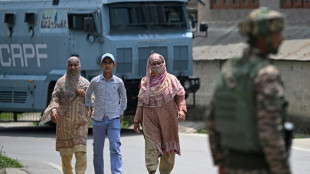
-
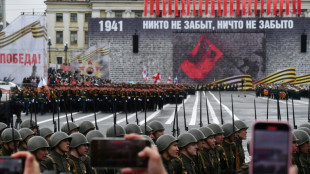 Xi meets Putin in Moscow as Ukraine reports truce violations
Xi meets Putin in Moscow as Ukraine reports truce violations
-
Israel forces close UN schools in annexed east Jerusalem
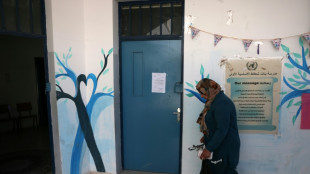
-
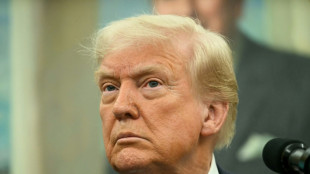 Trump to announce 'trade deal' with UK
Trump to announce 'trade deal' with UK
-
'Jumbo': the animated Indonesian film smashing records

-
 Stocks rise on trade hopes, London boosted by reports of deal
Stocks rise on trade hopes, London boosted by reports of deal
-
Emirates airline group announces record $6.2 bn gross profit
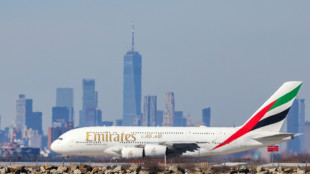
-
 Accused mushroom murderer sent children to movies before deadly meal
Accused mushroom murderer sent children to movies before deadly meal
-
Nintendo forecasts 15 million Switch 2 sales in 2025-26

-
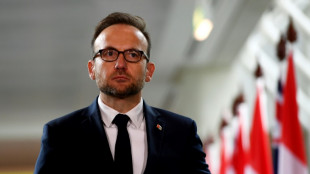 Australian Greens chief loses his own seat
Australian Greens chief loses his own seat
-
Toyota cites tariffs as it forecasts 35% net profit drop
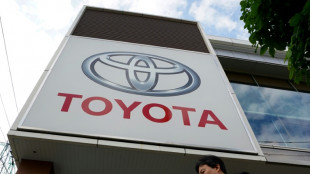
-
 Wolf protection downgrade set for green light in EU
Wolf protection downgrade set for green light in EU
-
Global cult following keeps Le Creuset simmering

-
 Austria's JJ makes operatic pop soar at Eurovision
Austria's JJ makes operatic pop soar at Eurovision
-
Toyota cites tariffs as it forecasts 35% drop in 2025-26 net profit
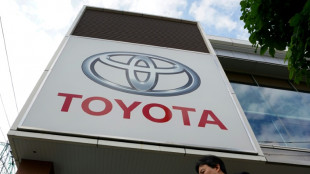
-
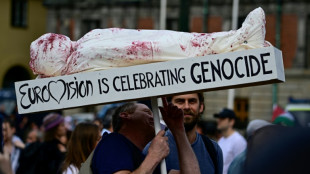 Depoliticising Eurovision 'impossible', experts say
Depoliticising Eurovision 'impossible', experts say
-
Trump official to unveil ambitious US air traffic control upgrade
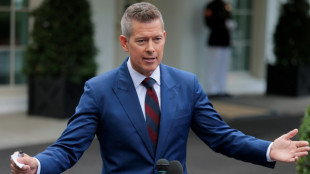
-
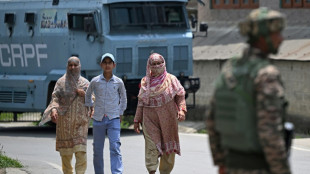 India and Pakistan trade fire after deadly escalation
India and Pakistan trade fire after deadly escalation
-
Knicks rally again to take 2-0 lead over Celtics, Thunder roar back

-
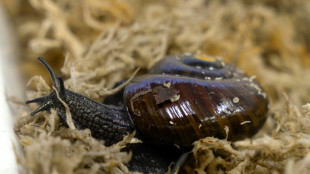 What the shell: scientists marvel as NZ snail lays egg from neck
What the shell: scientists marvel as NZ snail lays egg from neck
-
Eurovision week's opening parade set to start the party
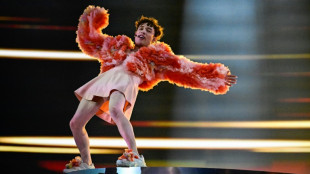
-
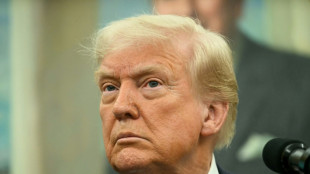 Trump to announce trade deal with UK on Thursday: US media
Trump to announce trade deal with UK on Thursday: US media
-
Dhoni says 'nothing to decide now' over retirement plans

-
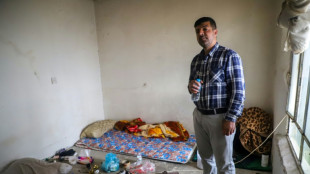 A bitter return for Iraqis kicked out of Europe
A bitter return for Iraqis kicked out of Europe
-
Stocks rise further on growing trade deal hopes
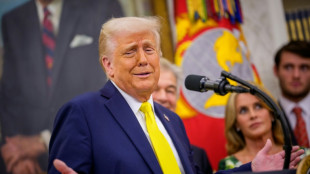
-
 Filipino pope could revive priestly vocations in Catholic bastion
Filipino pope could revive priestly vocations in Catholic bastion
-
NZ Rugby posts $11.6 mn loss, admits financial model 'not sustainable'
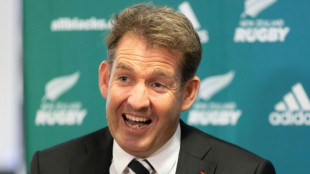
-
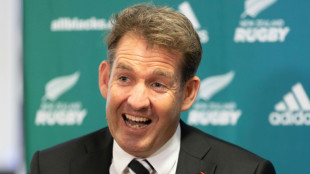 NZ Rugby posts $19.7mn loss, admits financial model 'not sustainable' financial model
NZ Rugby posts $19.7mn loss, admits financial model 'not sustainable' financial model
-
All eyes on Sistine Chapel chimney as conclave enters day two

-
 Digital voting breeds distrust among overseas Filipino workers
Digital voting breeds distrust among overseas Filipino workers
-
Bank of England set to cut rate amid Trump's tariffs
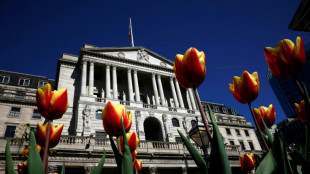
-
 Trump tariff plan brings Hollywood's struggles into focus
Trump tariff plan brings Hollywood's struggles into focus
-
'Dream turned nightmare' for Venezuelan migrant deported from US by Trump
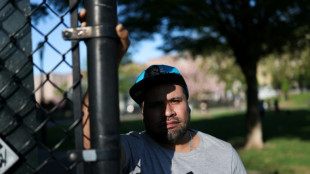
-
 Acceptance Period for MFE's Voluntary Public Takeover Offer for ProSieben Commences
Acceptance Period for MFE's Voluntary Public Takeover Offer for ProSieben Commences
-
Hemogenyx Pharmaceuticals PLC Announces Placing to Raise £451,250 and Director’s Dealing

-
 Agronomics Limited - Liberation Labs Announce Manufacturing Partnership
Agronomics Limited - Liberation Labs Announce Manufacturing Partnership
-
Malaysia Cybersecurity Center of Excellence Marks First Anniversary with New Partnerships, Scholarships and Expanded Programs

-
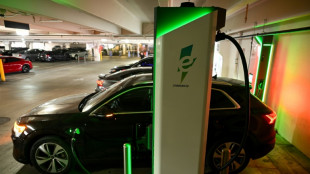 California leads lawsuit over Trump's EV charging funding change
California leads lawsuit over Trump's EV charging funding change
-
Meta blocks access to Muslim news page in India
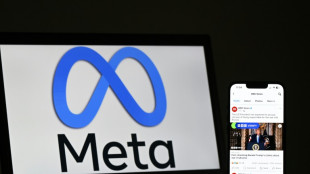
-
 PSG are deserving Champions League finalists, says Luis Enrique
PSG are deserving Champions League finalists, says Luis Enrique
-
Bolsonaro leads rally at site of 2023 Brazil insurrection

-
 Mexico City prepares to welcome millions for 2026 World Cup
Mexico City prepares to welcome millions for 2026 World Cup
-
Putin's order for three-day truce with Ukraine enters force
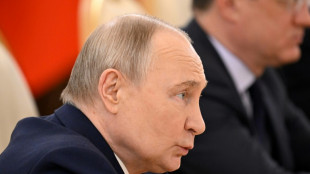
-
 Defiant Arteta says Arsenal were best team in Champions League despite painful exit
Defiant Arteta says Arsenal were best team in Champions League despite painful exit
-
US envoy Witkoff briefs UN Security Council on Gaza, other issues
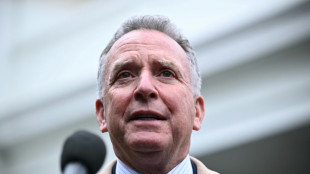
-
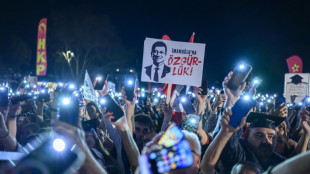 Tens of thousands take part in Istanbul rally for jailed mayor
Tens of thousands take part in Istanbul rally for jailed mayor
-
Pakistan warns will 'avenge' deaths from Indian strikes
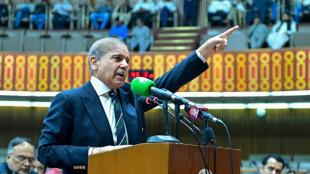
-
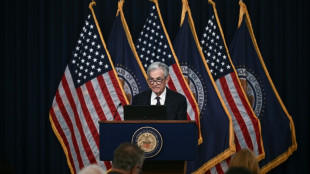 US Fed pauses rate cuts again and warns of inflation, unemployment risks
US Fed pauses rate cuts again and warns of inflation, unemployment risks
-
New accuser testifies against Weinstein in New York retrial
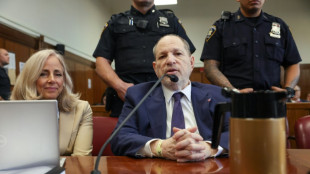

ECB buys itself time on rates as Ukraine war shakes eurozone
The European Central Bank on Thursday sped up its plans to wind down its bond-buying programme but gave itself time before raising interest rates, as the conflict in Ukraine clouded the outlook for the eurozone.
The Russian invasion was a "watershed for Europe", the bank said in a statement, reaffirming a pledge to "take whatever action" to stabilise the economy.
The outbreak of the conflict has given a fresh push to inflation in the euro area, which sat at an all-time high of 5.8 percent in February.
The soaring figures, well above the ECB's two-percent target, have caused concern amongst members of the 25-member governing council, with calls to end the bank's highly accommodative monetary policy.
On Thursday, the Frankfurt-based institution confirmed the end of its pandemic emergency bond-buying programme (PEPP) this month.
But it surprised observers by announcing it would speed up the winding down of a separate, pre-pandemic bond-buying scheme, plotting an end in the third quarter of 2022.
The bank stressed, however, that the end-date was dependent on inflation forecasts staying around the ECB's target, pledging to change the scale or timetable for the stimulus exit if the outlook deteriorates.
The ECB also pushed back the start of a potential interest rate hike, saying it would happen "some time" after the end of the asset-purchase programme.
In the past, the bank had said rate adjustments would come "shortly after" the end of bond buying.
Currently, the bank's rates sit at historic lows, including a negative deposit rate that charges banks to park their cash at the ECB overnight.
Attention now turns to ECB President Christine Lagarde's press conference at 14:30 local time (1330 GMT), where observers will be listening closely for further hints at the central bank's thinking.
- Stagflation fears -
"In light of the stagflation risk and high uncertainty, this decision gives the central bank maximum flexibility and keeps the option open for a rate hike before year-end," said Carsten Brzeski, head of macro at the bank ING.
The risk of "stagflation" in which inflation soars but growth lists, eroding economic well-being, had "clearly increased" after the invasion, Brzeski said, and left the ECB with a "dilemma".
The cental bank could do little to stop the new inflation push and would only threaten the economic recovery from the coronavirus pandemic if it tightened too quickly.
The high pace of price rises -- consistently above the bank's previous expectations -- has raised the prospects that new ECB projections on Thursday could see a significant upwards revision.
When the forecasts were last updated in December, the bank expected inflation to hit 4.9 percent in 2022, before falling to 2.9 percent in 2023 and 1.6 percent in 2024.
The economy was expected to forge ahead with 3.2 percent growth this year, followed by two years of 1.8-percent increases.
- Energy risk -
The inflation spike has been driven in no small part by soaring prices for energy due to the conflict with Russia, a major supplier to European countries.
While the United States and Britain will stop importing Russian oil, European sanctions have so far exempted energy to avoid heaping pressure on domestic economies.
A number of EU countries, including Germany and Italy, are highly reliant on Russia for their energy needs, and gas prices hit all-time highs at the beginning of the week on fears of conflict-related cuts to supply.
The conflict is also set to aggravate supply chain issues which weighed on production in 2021, with factory closures in Ukraine already leading to work stoppages at auto plants in Germany.
Ch.Kahalev--AMWN